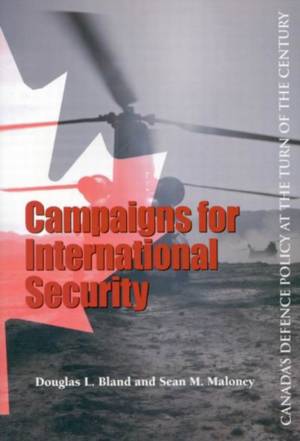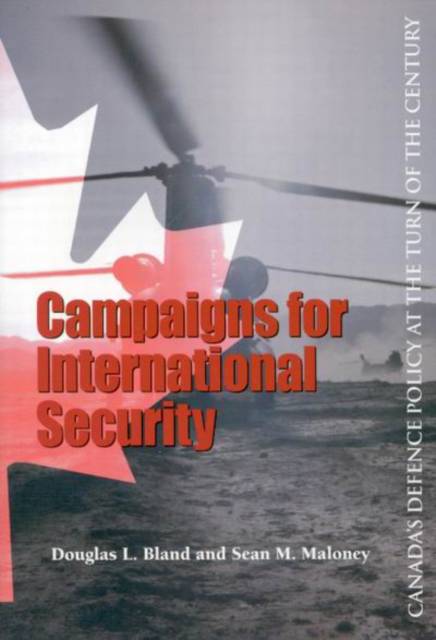
- Retrait gratuit dans votre magasin Club
- 7.000.000 titres dans notre catalogue
- Payer en toute sécurité
- Toujours un magasin près de chez vous
- Retrait gratuit dans votre magasin Club
- 7.000.000 titres dans notre catalogue
- Payer en toute sécurité
- Toujours un magasin près de chez vous
Campaigns for International Security
Canada's Defence Policy at the Turn of the Century
Douglas L. Bland, Sean Maloney
49,95 €
+ 99 points
Description
After more than ten years of effort by Canada and many other states to control and redress conflicts in the Balkans, Africa, the Middle East, and elsewhere, Canadian political and military leaders are still struggling to adjust defence policies and to build armed forces relevant to the international security situation Canada faces today. But the unending demand of what on the surface seem to be disparate operations and the absence of any overarching description of strategic reality confounds these efforts. Policies drawn from theories appropriate to the cold war era and classic peacekeeping missions are out of step with the demands of the past ten years and the future and make it difficult to develop new ways of thinking about defence policy and force development to deal with the world we live in. emerging from ten years of experience and seemingly different operations. The post-cold war era has been superceded by the stability campaign - a continuous diplomatic and military endeavour by states in various types of coalitions to halt conflicts, disarm belligerents, and police lawless regions around the world to bring peace, order and good government to international affairs. Armed force, and sometimes deadly force, is the central and necessary component of this campaign, but what type of force and what type of policies are appropriate to this new era? The authors address this question in a discussion of defence policy and management in Canada since 1989 and their relation to the needs of the stability campaign. They describe policy making in a Canadian context, political and other domestic factors that shape Canada's military capabilities, and the influence of the defence budgeting process on policy choices. and transforming both policy and the Canadian Armed Forces over the next ten years to meet the challenges of the stability campaign.
Spécifications
Parties prenantes
- Auteur(s) :
- Editeur:
Contenu
- Nombre de pages :
- 250
- Langue:
- Anglais
- Collection :
- Tome:
- n° 84
Caractéristiques
- EAN:
- 9780889119628
- Date de parution :
- 19-02-04
- Format:
- Livre broché
- Format numérique:
- Trade paperback (VS)
- Dimensions :
- 153 mm x 228 mm
- Poids :
- 494 g







